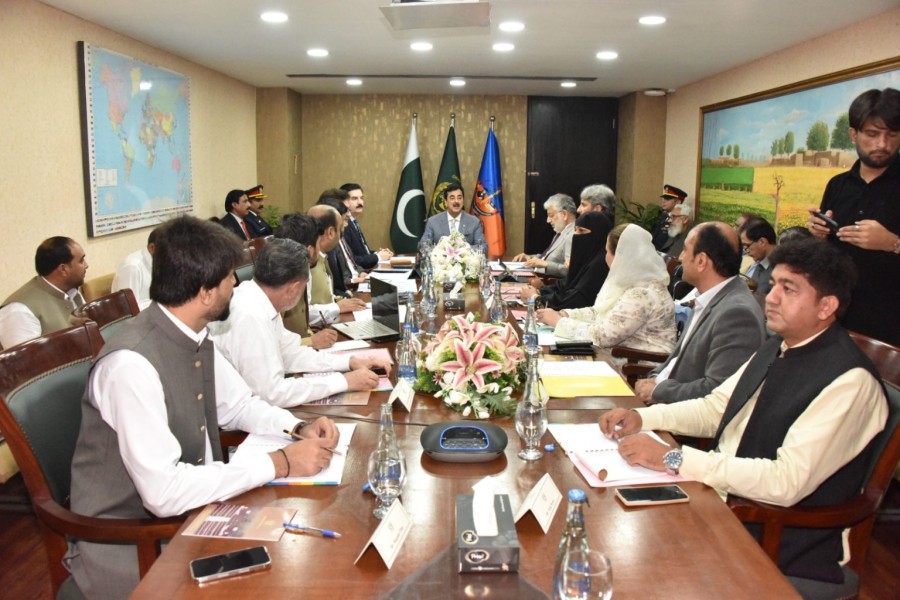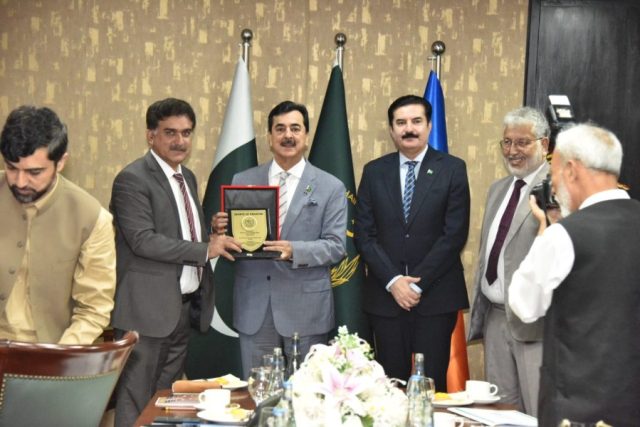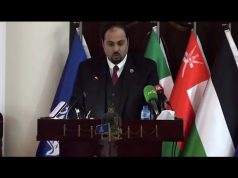ISLAMABAD, Tuesday, July 22, 2025 (WNP): Senate Chairman Syed Yousaf Raza Gilani on Tuesday emphasized that poverty, unemployment, and illiteracy are the root causes of terrorism and extremism, urging a comprehensive strategy to tackle these underlying issues and empower Pakistan’s youth for national development.
Speaking at the inaugural session of the Senate of the Kalam Bibi International Women Institute, Bannu, held at the Parliament House, Gilani said education and socio-economic inclusion must be at the forefront of the country’s fight against extremism.
Chairing the session on behalf of the President of Pakistan, Gilani hailed the establishment of the institute as a significant step toward opening higher education opportunities for women in the underdeveloped southern districts of Khyber Pakhtunkhwa.

“This institution will play a vital role in transforming the future of women in backward areas, giving them the tools to participate meaningfully in national progress,” Gilani remarked.
Reaffirming his lifelong commitment to education and health, the Senate chairman called for maximum facilitation at the institute, especially in terms of access to modern technology and internet connectivity. He directed the Higher Education Commission (HEC) to expedite the provision of necessary resources to the campus.
Gilani also proposed the establishment of support centers under the Benazir Income Support Program (BISP) in southern KP and Punjab to help address the socio-economic disparities faced by those regions.
Highlighting his advocacy for women’s rights, Gilani noted that his daughter has served as a goodwill ambassador for women’s empowerment and added that uplifting women and minorities remains central to his political agenda.
Khyber Pakhtunkhwa Governor Faisal Karim Kundi, who also addressed the session, expressed strong support for the initiative. He emphasized the importance of integrating the underprivileged districts of KP into the broader national development narrative.
“This institute is more than a university — it’s a gateway to opportunity for girls who’ve long been left behind,” Kundi stated, praising HEC’s support and urging continued investments in education-focused infrastructure.
He also proposed technological upgrades, improved campus facilities, and scholarships for deserving female students to ensure sustained progress.
Vice Chancellor Dr. Aurangzeb Khan briefed attendees on the institute’s academic goals, planned programs, and the legal challenges it has faced during its establishment. He underlined the importance of bridging the gender education gap in southern KP and noted that new courses would be introduced to meet local needs.
The session was attended by a host of prominent figures including HEC Chairman Dr. Mukhtar Ahmed, MNA Shahida Akhtar Ali, MPA Engineer Ahmad Khan Kundi, and other senior officials from academia and government.
The Kalam Bibi International Women Institute is expected to become a cornerstone for higher education and social mobility for women in southern KP — a region long deprived of such facilities — and a model for inclusive development across Pakistan.




